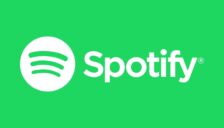Spotify has a deal for US customers: three months of premium for $1.

The Secret Hit-Making Power of the Spotify Playlist
David Pierce, writing for Wired:
Spotify, Apple Music, and other streaming services have fundamentally changed how people listen to music. In the process, they’ve changed how artists and songs break. Radio may remain the most popular way of discovering music among casual fans, but unless you’re Drake or Rihanna, it’s hard to get any play. Plus, real fans—the people who go to concerts and buy merch and actually pay for music—use streaming services like Spotify.
“Spotify playlists, and Spotify charts, and Spotify plays, have become the number one tool that labels and artists and managers are using in order to break artists and measure success,” says industry analyst Mark Mulligan. Facebook has more users, YouTube has more views, but Spotify represents more important real estate. “If you get things working on Spotify,” Mulligan says, “that’s going to crank the wheel.”
I’ve heard from labels and managers that specifically target certain regions in the world to boost Spotify plays and hit charts because it may lead to getting onto a featured playlist.
Third and Fourth Chapter of ‘Green Day: The Early Years’ Released
You Me at Six Live at Spotify
You Me at Six have a new “Live at Spotify” session up on Spotify.
Indie Labels Can Now Window Their Album Releases on Spotify
Spotify announced today a large group of indie record labels can put releases behind a two week paywall:
Continuing a successful nine-year partnership, the agreement is structured to reflect and promote the value of Merlin’s collective offering of its members’ repertoire, while offering improved marketing and advertising opportunities and enhanced access to data. Merlin member labels can also participate in Spotify’s recently announced flexible release policy.
Spotify’s Half-Priced Student Pricing Expands Worldwide
Sarah Perez, writing for TechCrunch:
The company announced today that its roughly half-priced version of its Premium service is now available to students who qualify in 33 new countries, in addition to the U.S., U.K., and Germany where student pricing is already offered.
The new countries where student pricing is now available includes: Austria, Australia, Belgium, Brazil, Canada, Chile, Columbia, Czech Republic, Denmark, Ecuador, Estonia, Finland, France, Greece, Hong Kong, Hungary, Indonesia, Ireland, Italy, Japan, Lithuania, Latvia, Mexico, Netherlands, New Zealand, Philippines, Portugal, Singapore, Spain, Switzerland, and Turkey.
Spotify Upgrades Fan Insights Feature to ‘Spotify for Artists’
Now, a year and a half later, the streaming service is upgrading Fan Insights and rebranding the initiative as Spotify for Artists, complete with new features and controls that allow all artists to not only peek under the hood at their data through the service, but also manage their artist presence within Spotify itself.
Sounds good.
With Spotify for Artists, verified musicians will be able to now manage the way their artist page looks, with photos; pinned songs, albums or playlists that they want to promote atop their profile; and the ability to add and control which playlists appear on their artist page, whether created by themselves or by fans or other artists.
Sounds great.
As with Fan Insights, artists will have access to listeners’ demographic information — age, gender, location — as well as real-time song information, playlist performance and data and the different ways listeners are accessing or discovering their music.
Sounds a tad creepy.
Chris Bevington, Spotify Executive, Dies in Stockholm Attack
Chris Bevington, an executive at music streaming service Spotify was killed in the Stockholm truck attack Friday (April 7), the company’s co-founder/CEO Daniel Ek confirmed on Facebook.
“It is with shock and a heavy heart that I can confirm that Chris Bevington from our Spotify team lost his life in Friday’s senseless attack on Stockholm,” Ek wrote on Facebook Sunday. “Whilst this terrible news is sinking in, our primary focus is on supporting the family and loved ones of Chris in any way we possibly can.”
Spotify Considers Directly Listing Shares on Public Exchange
The Swedish company, last valued at $8.5 billion, is seriously considering not holding a public sale of shares. Instead it is exploring simply listing its shares on an exchange in what is known as a direct listing, according to people familiar with the matter. It wouldn’t raise money—the hallmark of an IPO—or use underwriters to sell the stock.
And:
There are risks to this approach, whose consideration by Spotify was earlier reported by Mergermarket. With market forces determining the share price from the outset, the company’s public debut could be more volatile and unpredictable. Also missing would be the large blocks of stock underwriters typically allocate to investors they believe will hold the shares for the long term and promote trading stability.
Spotify Is Testing Lossless Audio. Can You Hear the Difference?
The Verge has up a test to see if you can tell the difference between compressed and lossless audio:
Below are three songs, each presented in three different versions: a lossless version at 1,411 kbps, a “premium” version at 320 kbps, and standard version at 160 kbps. Try and see if you can pick the lossless audio out of the three.
No cheating.
Spotify Premium Users Will Get Some Albums Two Weeks Before Free Users
Spotify has agreed to a new licensing agreement with Universal Music Group, the companies announced today. As part of the deal, Spotify has agreed to allow new albums from Universal artists to be restricted to its premium service for up to two weeks moving forward, confirming our report from last month. Spotify will also pay slightly less to UMG in royalty fees, according to sources close to the situation.
Spotify Acquires and Shutters MightyTV
Paul Sawers, writing for VentureBeat:
Spotify has acquired MightyTV, a New York-based startup that uses AI to provide video recommendations based on personal preferences and opinions of friends. Terms of the deal were not disclosed. […]
As a result of this acquisition, MightyTV is being shuttered with immediate effect, which essentially means this deal was more of an acqui-hire than anything else.
Report: Spotify Considers Restricting Biggest Releases to Paid Users
Jordan Kahn, writing for 9to5Mac:
Spotify is considering a move that would mean some of its biggest new releases will be restricted to paid users, according to a new report from Financial Times. The decision would come as part of a negotiation with record labels that would reduce the amount of royalties Spotify pays for songs and also allow the company to prepare for an initial public offering.
This has always felt inevitable.
Spotify Hits 50 Million Paid Subscribers
Spotify has reached 50 million paid subscribers.
Spotify Testing Lossless Version of Service
The Verge is reporting that Spotify is preparing to launch a lossless version of it’s streaming service:
The streaming service began running a test on a small group of users yesterday, offering the Hi-Fi service for $5 to $10 above the $10 per month price for Spotify Premium.


